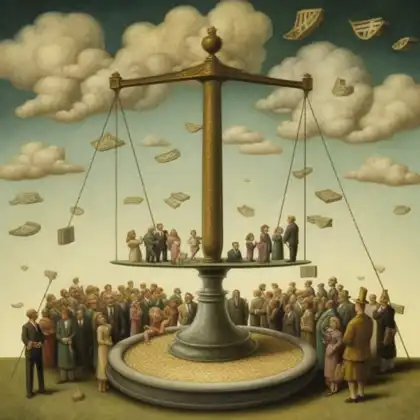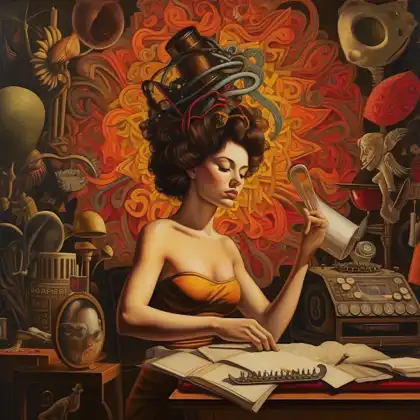Hi, my name is…what?
The idea that your name controls your life is ridiculous, but if you feel uncomfortable with the idea of changing it, maybe it’s time to look a little deeper. We use labels every day and they have power, the power of meaning.
What’s my name again?
Originally, your first name was just a label to distinguish you from someone else. In the 11th century, surnames denoted a profession like Baker or Smith, locations like Hill, Green or status like Agassiz or Brickdale. Surnames are patronymic, being passed through generations, along with latent connotations.
As language evolved, names became laden with meaning especially from religion (side note: in religious and other fictional texts, to know the true name of a thing grants you control over it). Over a long period of time, names compounded to become simple labels with complex meanings.
Yours is not mine
Labels have been used throughout history for good and bad. Let me describe a symbol to you:
“I am a symbol of peace, sacred, lucky and auspicious. I denote “One” that is self-existent, unborn and directly originating from eternity since time eternal. I am a guardian of the world”
This is the symbol I am describing:

This shows the power and weakness of labels. The Nazis claimed an existing label, the Swastika, and skewed its original “world guardian” meaning to represent racial purity (the Aryan race). This exerted their dominion over it and as a result, very few people are aware of the original connotations.
“But!” I hear you say, “to me, this symbol means hate, evil deeds and war.” Herein lies the frustrating truth. No matter the initial meaning, it is the interpretation that ultimately defines the label.
Just say what you mean!
Today, we navigate the myriad of labels seamlessly with little conscious thought for the immense nuance that lies below. Figurative language like personification, metaphor, and hyperbole adds another layer of complexity and has existed for centuries. The rate of new words has increased from 800 per year to 4,000 per year, largely due to technology. Our capacity to communicate has increased and so has our ability. But is this a symptom of a bigger problem? Are we struggling with inadequacies of communication?
Junoesque
You experienced it, the struggle to put something into words. Think about a song that makes your skin tingle. It’s so good it gives you shivers. Got it? Good. Now try to describe it to me.
Whatever description you could give will always fall short of capturing the real sensation, of fully conveying the experience. Even if I replicated your experience, it wouldn’t mean the same to me. In most cases labels are “good enough,” but they never convey meaning perfectly.
You get a name! and you get a name!
This seems fairly benign, right? But not having a name for something can make it feel less real, to others. For example, there is no name to describe an attraction to transgender people. Does this make their attraction any less valid than traditional hetero or homo? Factually no. But culturally, without a name, it’s hard to garner validity or authenticity. This diminishes the power of the concept and by extension the people involved, framing the conversation around it.
I know what you mean
But labels can be useful by giving form to abstract concepts like equality or egalitarianism. These names represent concepts greater than we can experience personally. In this instance, the culmination of values and meaning over time, give rise to a collective understanding.

Without a term for equality, this complex issue would be hard to describe, hard to use in conversation, and hard to portray visually. Labels can be tools to elicit even greater impact than experience.
Are you rich?
A collective or homogenous understanding has its risks too. Imagine you grew up with the collective “Disney” understanding of love;
“a damsel in distress, with a white knight who comes to save the day.”
If you then experienced love in real life, the chances are it wouldn’t meet these pre-conceived expectations. Would then believe you hadn’t really experienced love?
You don’t know me at all
The ramifications of labels are far-reaching once you really look. We can use words passively, relying on culture and context to guide us. But if we consider labels more objectively, they become our tools, they can bend to our will.
But what do you think? When have you experienced this in your life? Write to me about what you think and let’s discuss it!



